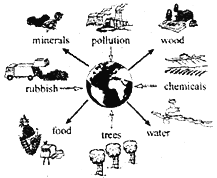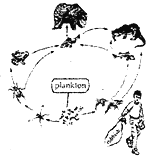-
Welcome to our holiday Activity Courses
We offer holiday activity courses for young people aged between 7-15 years old and operate during every school holiday except Christmas. We have a track: record of excellence and have been delivering holiday activity courses for over 20 years.
Master Chef
Master Chef is a practical cooking experience for young people who want to try their hand in the kitchen. You will be taught tips and techniques (技能) as well as cooking something different every day. We, will supply everything, and all you need is a willingness to try something new.
Cost: $140
Musical Theatre
The young people will have the chance to develop their acting and singing skills through many exciting workshops. They will learn basic singing techniques, improve acting skills and create plays to develop their creativity.
At the end of the week children will perform to parents in Prep Hall at 3:20 pm.
Cost: $135
Water Sports
We take Children to the Marine Lake for water sports. Activities include sailing, windsurfing and power boasting.
We will supple wetsuits and children should bring their own footwear, swimwear and a T-shirt. A packed lunch will be provided. Transport to the Marine Lake is by school minibus.
Cost: $160
Judo
Judo—meaning “gentle way” is a modern martial art (武术) and Olympic sport. The Judo course is led by a fully trained instructor and it is open to all levels; beginners are welcome.
Cost: $160
Children attending the course are on holiday; so it is important for them to have lots of fun and make new friends while learning new skills. With so many fantastic courses on offer, we are Wirral’s leading Holiday Activity Course Provider.
We look forward to welcoming you!
1.What’s the cost of Master Chef?
A. $140 B. $135
C. $260 D. $160
2.Which course provides a packed lunch?
A. Master Chef B. Musical Theater
C. Water sports D. Judo
3.The passage in a (n) __________.
A. letter B. story
C. poem D. advertisement
难度: 中等查看答案及解析
-
Have you ever read Alice’s Adventures in Wonderland? It was written by Lewis Carroll. He was an English writer, poet, scientist, photographer, and priest. His real name was Charles Lutwidge Dodgson, and Lewis Carroll was his pen name. He was born in 1832 and died in 1898.
He is most famous for writing two children’s fantasy books about a young girl called Alice. They were titled Alice’s Adventures in Wonderland (1865) and through the looking-Glass (1872).
He also wrote two famous poems called “The Hunting of the Snake” and “The Jabberwocky”. What is important about these poems is that he made up many new words to use in them. He was an expert at “word play” and used words in many different ways. Some of these ways were quite new. And this has influenced members of the literary elite who are well educated about English. Many people still study his work and his life today.
Although they seem to have been written for children, Lewis Carroll’s books and poems have been enjoyed by people of all ages. If you have not read Alice’s Adventures in Wonderland, which is also referred to by the short title Alice in Wonderland, you should read it soon. No matter how old you are, you will find it exciting and enjoyable.
1.Who wrote Alice’s Adventures in Wonderland?
A. Charles Dodgson. B. Jabberwocky
C. Alice D. Jane Fleeb.
2.How many poems did Lewis Carroll write?
A. One. B. Two.
C. Three. D. Four.
3.From the passage, we know __________ like reading Alice in Wonderland.
A. only children B. young people
C. only adults D. people of all ages
4.According to the passage, we can infer Lewis Carroll was __________.
A. a woman writer B. a Japanese writer
C. an American writer D. an imaginative writer
难度: 中等查看答案及解析
-

The population of the Earth is growing faster. It is important that we look after the Earth. We need it!
The Earth gives us a lot of things. We also give the Earth a lot, but some of the things are not good.
In nature, when something dies, other animals and plants get food from it. Every animal or plant gives food for other animals or plants. However, animals can’t get food from many of the things that we ‘give’ the Earth. Animals and plants can’t eat metal, plastic and glass. These things will stay in the ground for many, many years.

Some rubbish is very dangerous for plants and animals. In some places, many animals live together. One animal makes food for many more animals. If we put rubbish and chemicals in the water, the plankton (浮游生物) can die. If there isn’t any plankton, many animals have nothing to eat.
So what can we do? Don’t leave any rubbish in the countryside! Don’t make so much rubbish!
1.The Earth gives us __________.
A. food B. rubbish
C. chemicals D. pollution
2.When something dies in nature, __________.
A. water and grass are polluted
B. plastic and wood become food
C. other animals and plants get food
D. metal and glass stay in the ground
3.We must __________ to look after the Earth.
A. put metal in the ground B. use more wood
C. keep frogs in the water D. make less rubbish
难度: 简单查看答案及解析
-
Many textbooks are not written in the kind of English that we speak every day. In fact, sometimes the reading is so difficult that it almost seems like a foreign language. In a way, it is—the language of science. You should not expect to be able to read a difficult science passage the same way you read an interesting story; you should not expect to read it easily and all at once. Instead, you may have to read it several times through, catching on the meaning of difficult words, going back over difficult sentences, and finally putting the whole thing together. Do not be discourages if the whole passage don’t make sense to you at first. You need to pick it apart patiently until you can understand it.
These are the steps to follow when you are reading something difficult:
1. Start to read normally until you____a sentence that doesn’t make sense to you.
2. When a sentence doesn’t make sense, go back and read it again more slowly.
3. Look for any word you don’t know in the sentence. Try to understand their meanings using word parts and context clues(上下文线索). If necessary, look them up in the dictionary.
4. Look at the next few sentences to see if they explain more about the sentence you are working on. Do not read very much farther ahead until you understand what is being said.
5. Finally, read the sentence again. Try to put it into simpler words.
6. Read through the passage once. Try to understand all the hard parts well. Then read the whole passage once more at a usual speed. This helps you to put all ides together.
The stops sound a lot harder than they are. It is really just the normal way good readers understand anything that is difficult to read. After you have done the best you can this way, you should always feel free to ask for help from your teacher, if you have one.
1.The underlined phrase “run into” means ___________.
A. work out B. come across C. look into D. pass by
2.From the passage, we can know _________.
A. we should look up new words before reading
B. it is sometimes difficult to read a science passage
C. the six steps are helpful in learning spoken English
D. interesting stories help readers to improve their English
3.The massage is mainly about _________.
A. steps of studying science B. difficulties in reading science
C. ways of reading science passages D. researches on science and English
难度: 简单查看答案及解析